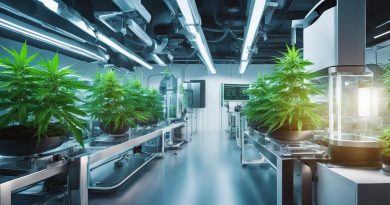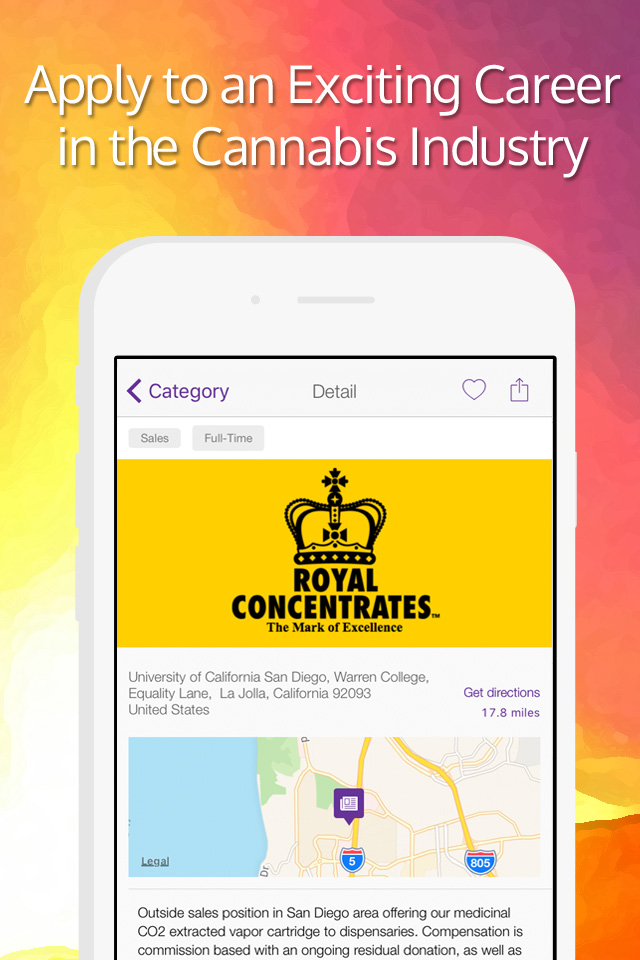Exploring the Innovative World of Hemp-Based Products
Welcome to our article on the innovative world of hemp-based products. We are excited to dive into the numerous eco-friendly solutions, hemp technology advancements, sustainable materials, and industrial hemp uses that are transforming various industries. The versatility of hemp is revolutionizing fashion, beauty, health, and even architecture. With its growing popularity and acceptance, hemp is poised to shape a sustainable future.
Key Takeaways:
- Hemp-based products offer eco-friendly solutions across multiple industries.
- Hemp technology and innovation are driving sustainable alternatives in fashion, beauty, and health.
- Industrial hemp has a wide range of applications, from construction materials to food.
- The use of hemp in architecture and fashion showcases its versatility and potential for sustainability.
- The acceptance and demand for hemp-based products are on the rise, influencing market strategies.
The Difference Between Hemp and CBD Oil
Hemp and CBD oil are often confused, but they have different extraction sources and uses. CBD oil is extracted from the flowers, leaves, and stalks of hemp or cannabis and is known for its anti-inflammatory properties. It is used for pain management and promoting skin health. On the other hand, hemp seed oil is extracted from the seeds of the hemp plant and is primarily used for industrial purposes. Hemp seed oil is rich in antioxidants and is known for its moisturizing effects on the skin. It does not contain THC, the psychoactive compound found in cannabis.
When it comes to skincare, both CBD oil and hemp seed oil offer benefits. CBD oil’s anti-inflammatory properties help reduce redness, calm irritation, and improve overall skin health. Its ability to reduce excess sebum production also makes it suitable for oily and acne-prone skin. On the other hand, hemp seed oil’s moisturizing effects help hydrate and nourish the skin, making it an excellent choice for dry and sensitive skin types.
It’s important to note that while CBD oil may contain trace amounts of THC, hemp seed oil does not. This means that CBD oil may have psychoactive effects, while hemp seed oil does not. Additionally, CBD oil is commonly used as a dietary supplement, while hemp seed oil is often used in cooking and as a natural moisturizer.
https://www.youtube.com/watch?v=7SZUql_68yQ
Comparison of Hemp and CBD Oil
| Hemp Seed Oil | CBD Oil | |
|---|---|---|
| Extraction Source | Seeds of the hemp plant | Flowers, leaves, and stalks of hemp or cannabis |
| Uses | Industrial purposes, moisturizing effects on the skin | Pain management, promoting skin health |
| THC Content | No THC | May contain trace amounts of THC |
| Properties | Moisturizing, rich in antioxidants | Anti-inflammatory, pain-relieving |
The Growing Acceptance of Cannabis and Hemp
The perception of cannabis and hemp is changing, and they are being accepted in mainstream culture. Cannabis is no longer associated solely with the stoner stereotype but is seen as a sophisticated market catering to educated consumers. The decriminalization of cannabis, increased digital connectivity, and the portrayal of female stoners in mainstream media have led to more women becoming industry leaders. This cultural shift has resulted in cannabis gaining exposure in various forms, from TV shows to social media, and has paved the way for the acceptance of hemp-based products.

The decriminalization of cannabis has played a significant role in shifting public attitudes towards the plant. As more states legalize cannabis for medicinal or recreational use, the negative stigma associated with it is gradually fading away. People are realizing the potential benefits of cannabis, not only as a recreational substance but also as a therapeutic agent. This has opened up opportunities for the hemp industry to flourish, as hemp-derived products like CBD oils and tinctures gain popularity for their potential health benefits.
The cultural shift towards accepting cannabis and hemp has also been driven by the portrayal of female stoners in mainstream media. TV shows and movies featuring empowered women cannabis users have challenged traditional stereotypes and showcased the diverse and multifaceted nature of cannabis consumers. This has helped break down barriers and create a more inclusive and accepting environment for cannabis and hemp enthusiasts.
In addition to changing perceptions, increased digital connectivity has also played a crucial role in the acceptance of cannabis and hemp. Social media platforms have become hubs for cannabis-related content, allowing people to connect, share information, and explore the world of cannabis and hemp. Influencers and bloggers have emerged as key figures in the industry, providing valuable insights and recommendations to their followers. This online community has fostered a sense of camaraderie and support, further fueling the acceptance and integration of cannabis and hemp into mainstream culture.
Table: Decriminalization of Cannabis by State
| State | Year of Decriminalization |
|---|---|
| California | 1975 |
| Colorado | 1975 |
| Oregon | 1973 |
| Washington | 1971 |
| Massachusetts | 2008 |
As the acceptance of cannabis and hemp continues to grow, the market for hemp-based products is expanding. From CBD-infused beauty and wellness products to hemp textiles and sustainable fashion, there is a wide range of options available to consumers. The increasing demand for eco-friendly and sustainable alternatives has further propelled the growth of the hemp industry. As more people prioritize conscious consumption and embrace the benefits of cannabis and hemp, the future looks bright for this rapidly evolving market.
Hemp’s Versatility in Architecture and Fashion
Hemp’s versatility extends beyond beauty and health industries. It also plays a significant role in architecture and fashion, showcasing its potential for sustainable and eco-friendly solutions in these fields. Let’s explore how hemp is being utilized in the construction of the Zero-carbon Flat House and its growing influence in the fashion industry.
Hemp in Architecture:
The Zero-carbon Flat House, located in the UK, is a prime example of hemp’s versatility in architecture. This innovative construction utilizes hemp-based materials, such as hempcrete, for its walls and insulation. Hempcrete is a mixture of hemp fibers, lime, and water, creating a lightweight and sustainable alternative to traditional construction materials. Not only does hempcrete have excellent insulating qualities, but it also has the ability to sequester carbon emissions, making it a truly eco-friendly option for sustainable building.
“The Zero-carbon Flat House showcases how hemp-based construction materials can contribute to reducing carbon emissions and promoting sustainable architecture.”
Hemp in Fashion:
Hemp is making waves in the fashion industry, with designers recognizing its potential as a sustainable alternative to traditional fabrics. The use of hemp in clothing promotes gender and age-inclusive fashion, as well as eco-consciousness. Hemp fibers are known for their durability and breathability, making them ideal for creating long-lasting and comfortable garments. By incorporating hemp into their creations, fashion designers are embracing sustainability and paving the way for a more environmentally friendly future in the industry.
| Applications | Benefits |
|---|---|
| Zero-carbon Flat House | Reduces carbon emissions Promotes sustainable architecture |
| Hemp in Fashion | Sustainable alternative to traditional fabrics Promotes eco-consciousness |

Hemp’s Role in Corporate and Start-Up Innovations
As the popularity of hemp continues to soar, many corporations and start-ups are recognizing the vast potential of hemp-infused solutions in various sectors. From beauty care to home care and even pet products, hemp is making its way into everyday wellness routines. The versatility of hemp allows for the creation of innovative and sustainable alternatives that cater to the growing demand for natural and eco-friendly products.
In the beauty care industry, hemp is being incorporated into body washes, lotions, and other personal care items to promote wellness and nourish the skin. Its natural properties, such as its rich omega fatty acids and antioxidants, make it a popular ingredient for promoting healthy skin and hair.
Similarly, in the home care sector, hemp-based cleaning products are gaining traction. These products offer a natural and effective way to clean and maintain a clean living environment. Hemp’s antibacterial and antifungal properties make it an ideal ingredient for eco-conscious consumers seeking alternatives to chemical-laden cleaners.
“The versatility of hemp allows for the creation of innovative and sustainable alternatives that cater to the growing demand for natural and eco-friendly products.”
Hemp’s Potential in Pet Products
The use of hemp in pet products is another growing trend in the industry. Hemp-infused treats and supplements are becoming popular among pet owners who seek natural remedies to support their furry companions’ overall well-being. Hemp-derived CBD oil is believed to offer a range of benefits for pets, including stress relief, joint support, and improved mobility.
| Product | Benefits |
|---|---|
| Hemp-infused pet treats | Supports overall wellness and provides key nutrients |
| Hemp-derived CBD oil for pets | Alleviates stress, supports joint health, and improves mobility |
| Hemp bedding | Provides a comfortable and sustainable bedding option for pets |
Global Hemp Innovation Center at OSU
The Global Hemp Innovation Center at Oregon State University (OSU) is a pioneering institution dedicated to advancing hemp research and exploring the market potential of this versatile plant. With its state-of-the-art facilities and academic expertise, the center is at the forefront of hemp cultivation, innovation, and education.
Our center is the largest of its kind in the nation, bringing together over 75 faculty members from various disciplines to conduct comprehensive research on hemp. Our researchers collaborate across multiple locations globally, leveraging Oregon’s optimal climate for hemp growth and the university’s agricultural expertise.
Through our research efforts, we strive to unlock the full potential of hemp and its wide range of applications. From exploring its use in architecture and fashion to studying its health and wellness benefits, we are committed to driving innovation and sustainability in the hemp industry.

Table: Key Research Areas at the Global Hemp Innovation Center
| Research Area | Description |
|---|---|
| Hemp Cultivation | Optimizing cultivation techniques, genetics, and crop management practices for improved yields and quality. |
| Hemp Processing | Developing innovative methods for extracting and processing hemp to maximize efficiency and product quality. |
| Hemp-Based Products | Studying the potential of hemp in various industries, including construction, textiles, food, and health products. |
| Environmental Impact | Investigating the environmental benefits of hemp cultivation, such as carbon sequestration and sustainable farming practices. |
At the Global Hemp Innovation Center, we believe that collaboration between academia, industry, and policymakers is essential for the growth of the hemp industry. By sharing knowledge and expertise, we can drive meaningful change, promote sustainable solutions, and harness the market potential of hemp-based innovations.
Oregon’s Prominence in the Hemp Industry
Oregon has emerged as a prominent player in the hemp industry, capitalizing on its favorable location and agricultural expertise. With its diverse climate and fertile soil, the state offers ideal conditions for hemp growth, making it a top choice for cultivators.
Hemp Growth and Agricultural Expertise
The hemp industry in Oregon has seen significant growth in licensed hemp acres, with projections indicating that the state could become the top producer in overall profitable production land for hemp. The combination of favorable growing conditions and a robust agricultural sector has positioned Oregon as a leader in the industry.
Oregon’s rich agricultural heritage and expertise contribute to the success of the hemp industry. Local farmers have embraced hemp cultivation, leveraging their knowledge and experience to produce high-quality hemp products. The state’s agricultural community plays a vital role in advancing hemp research and innovation.
| Key Factors | Impact |
|---|---|
| Favorable growing conditions | Optimal climate and fertile soil support healthy hemp growth. |
| Agricultural expertise | Experienced farmers apply their knowledge to cultivate high-quality hemp. |
| Research and innovation | Collaboration between farmers, researchers, and institutions drives industry progress. |
Oregon State University’s hemp research center further reinforces the state’s prominence in the hemp industry. The center serves as a hub for research, innovation, and collaboration, bringing together experts from various disciplines to advance knowledge and drive the growth of the industry.
Profitable Production Land
Oregon’s vast agricultural land provides ample opportunities for profitable hemp production. The state offers an abundance of arable land that can be cultivated for hemp, allowing farmers to scale their operations and meet the growing demand for hemp-based products.
By leveraging its agricultural expertise and productive land, Oregon continues to solidify its position as a leader in the hemp industry. The state’s commitment to innovation, research, and sustainable practices ensures a bright future for the hemp sector in Oregon.
The Global Reach of OSU’s Hemp Research
At Oregon State University (OSU), our commitment to hemp research extends far beyond our campus borders. Through strategic partnerships in Europe and Asia, we are able to conduct comprehensive research in areas with similar growing conditions and complementary research areas. Our global reach allows us to explore the full potential of hemp and contribute to the advancement of sustainable alternatives on a global scale.
With over 65 faculty members from various disciplines, OSU boasts the largest and most diverse team in the nation dedicated to hemp research. This interdisciplinary collaboration ensures that our research is comprehensive and holistic, covering multiple aspects of hemp cultivation, processing, and utilization. By bringing together experts from fields such as plant research, food innovation, pharmacy, public health, public policy, business, and engineering, we are able to gain a deep understanding of hemp and its applications.
“Our strategic partnerships with international institutions enable us to broaden the scope of our research and leverage the expertise of scientists from around the world. By sharing knowledge and resources, we can accelerate the development of innovative hemp-based solutions and address global challenges.”
Through our international collaborations, we participate in hemp symposiums, conferences, and workshops, further showcasing our leadership in hemp research. These events serve as platforms for sharing knowledge, exchanging ideas, and forging new partnerships that drive the progress of the hemp industry. Our global network allows us to stay at the forefront of emerging trends and technologies in hemp, ensuring that our research remains relevant and impactful.
Institutional Collaboration
In addition to our global partnerships, we also collaborate with industry stakeholders, government agencies, and other academic institutions within the United States. These collaborative efforts strengthen our research capabilities and enhance the practical applications of our findings. By working together, we can address the challenges and opportunities presented by the rapidly evolving hemp industry.
| Institution | Collaboration Highlights |
|---|---|
| Name of Institution 1 | Highlight 1 |
| Name of Institution 2 | Highlight 2 |
| Name of Institution 3 | Highlight 3 |
Comprehensive Research at OSU’s Global Hemp Innovation Center
At OSU’s Global Hemp Innovation Center, we are committed to conducting comprehensive research on hemp and exploring its potential applications. Our interdisciplinary approach brings together faculty members from 19 disciplinary areas, allowing us to connect plant research, food innovation, pharmacy, public health, public policy, business, and engineering. By collaborating across diverse fields, we ensure a holistic understanding of hemp and its various uses.
In our center, we value interdisciplinary collaboration as it brings fresh perspectives and allows for innovative solutions. By leveraging the expertise and knowledge of our faculty members, we are able to conduct in-depth research on the different aspects of hemp. From analyzing its genetic makeup to exploring its potential in food and beverage products, our research spans a wide range of areas. This comprehensive approach enables us to uncover unique insights and drive innovation in the hemp industry.
“Our interdisciplinary approach ensures a holistic understanding of hemp and its potential applications.”
Exploring Plant Research and Food Innovation
One focus area of our research at OSU’s Global Hemp Innovation Center is plant research. Our scientists work tirelessly to unlock the secrets of hemp’s genetic makeup and understand how it can be optimized for various uses. From developing disease-resistant strains to enhancing its fiber production, our plant research aims to improve the overall quality and yield of hemp crops.
Additionally, we are at the forefront of food innovation, exploring the use of hemp as a sustainable ingredient in various food and beverage products. Our team of experts collaborates with industry partners to develop new recipes, formulate innovative products, and ensure that hemp-infused foods meet the highest standards of taste, quality, and safety.

Supporting Oregon’s Hemp Industry
As a leading research institution in Oregon, we are dedicated to supporting the growth of the state’s hemp industry. In addition to our research efforts, we provide growers with access to certified hemp seeds, enabling them to cultivate high-quality crops. By collaborating with industry stakeholders and sharing our expertise, we contribute to the development of a robust and sustainable hemp market in Oregon.
Our comprehensive research at OSU’s Global Hemp Innovation Center is paving the way for the future of the hemp industry. Through interdisciplinary collaboration, plant research, and food innovation, we are uncovering new possibilities and driving the sustainable growth of this versatile plant. By working together, we can harness the full potential of hemp and create a more sustainable and eco-friendly future.
The Importance of Consumer Demand for Hemp-Based Products
Consumer demand plays a pivotal role in shaping the success and growth of the hemp industry. As the market for hemp-based products continues to expand, understanding and catering to consumer preferences becomes increasingly important. By analyzing consumer behavior and values, we can develop effective market strategies that meet the demand for sustainable alternatives.
Studies have shown that consumers are increasingly drawn to hemp products due to their eco-friendly and sustainable nature. With rising awareness about the detrimental effects of conventional products on the environment, consumers are actively seeking sustainable alternatives across various industries. Hemp-based products, with their minimal environmental impact and use of renewable resources, provide a compelling solution. Understanding this demand can help businesses tailor their offerings and communication strategies to resonate with environmentally conscious consumers.
To effectively tap into consumer demand, it is essential to go beyond demographic data and delve into deeper insights. Ethical sourcing, health benefits, and environmental awareness are significant factors that influence the acceptance and adoption of hemp products. By highlighting these attributes and effectively communicating them to consumers, businesses can position themselves as leaders in the sustainable product market.
Market strategies should focus not only on product development but also on building trust and transparency with consumers. Providing clear information about the sourcing, production process, and benefits of hemp-based products helps in establishing credibility and encouraging consumer loyalty. Moreover, actively engaging with consumers through social media platforms and educational campaigns can help spread awareness and further drive the demand for hemp products.
The Potential of Hemp-Based Products in Meeting Consumer Demand
| Attributes | Consumer Demand | |
|---|---|---|
| List | Environmentally friendly and sustainable |
|
| Table | Health benefits |
|
| Quote | Ethical sourcing and transparency | Consumers value brands that prioritize ethical practices and provide transparent information about their products |
The Future of Hemp-Based Innovations
As the hemp industry continues to gain acceptance and consumer demand for hemp-based products grows, the future of this innovative sector looks promising. With its wide range of applications and sustainable qualities, hemp has the potential to revolutionize various industries and provide eco-friendly solutions to meet market needs. To fully unlock the market potential of hemp, strategic innovation strategies and research collaborations are essential.
Investments in research and development will play a crucial role in driving the future of the hemp industry. By exploring new and innovative uses for hemp, researchers can discover novel applications and expand the market reach of hemp-based products. This includes investigating the potential of hemp in areas such as construction materials, biofuel production, textile manufacturing, and more. By focusing on innovative strategies, industry stakeholders can tap into new markets, increase product diversity, and meet evolving consumer demands.
Collaboration between producers, institutions, and researchers is essential for the continued growth and success of the hemp industry. By sharing knowledge, expertise, and resources, stakeholders can collectively address research needs and accelerate the development of hemp-based innovations. This collaborative approach will not only benefit the industry as a whole but also foster sustainability and ensure the responsible cultivation and utilization of hemp.
| Innovation Strategies | Research Needs |
|---|---|
| Exploring new applications for hemp | Identification of viable cropping systems for optimal hemp growth |
| Investing in advanced hemp processing technologies | Optimizing extraction methods for maximum yield and quality |
| Collaborating with other industries for cross-sector innovations | Studying the long-term effects of hemp cultivation on soil health |
| Promoting sustainable practices throughout the entire hemp supply chain | Developing comprehensive standards for hemp-based products |
As the hemp industry continues to evolve, it is important for stakeholders to stay informed and adapt to market trends and consumer preferences. By staying ahead of the curve, industry players can position themselves for success in this rapidly growing and ever-changing market. The future of hemp-based innovations is bright, and with strategic innovation strategies and research collaborations, we can unlock the full potential of this versatile plant.
Conclusion
In conclusion, hemp product innovations are revolutionizing various industries and providing sustainable solutions for a greener future. From the beauty and health sectors to architecture and fashion, hemp’s versatility is being embraced for its numerous benefits. Consumer demand plays a crucial role in driving the success of the hemp industry, and understanding consumer behavior and preferences is vital for developing effective market strategies.
Collaboration between stakeholders is key to unlocking the full potential of hemp and driving further research and innovation. By working together, we can continue to explore the possibilities and meet the growing consumer demand for hemp-based products. The industry is still in its early stages, and there is ample opportunity for growth and collaboration to shape the future of hemp.
With a focus on sustainability and eco-friendly solutions, the hemp industry has the potential to make a significant positive impact on our planet. Through research collaboration and investment in innovation, we can continue to develop and improve hemp product offerings, meeting the needs of today’s customers while creating a more sustainable future for generations to come.
FAQ
What is the difference between hemp and CBD oil?
Hemp oil is extracted from the seeds of the hemp plant and is primarily used for industrial purposes. CBD oil, on the other hand, is extracted from the flowers, leaves, and stalks of hemp or cannabis and is known for its anti-inflammatory properties.
How is hemp being embraced in mainstream culture?
The decriminalization of cannabis, increased digital connectivity, and the portrayal of female stoners in mainstream media have led to more acceptance of cannabis and hemp. They are no longer associated solely with the stoner stereotype but seen as a sophisticated market catering to educated consumers.
How is hemp used in architecture and fashion?
Hemp is being used in the construction industry, such as the Zero-carbon Flat House in the UK, which utilizes hemp for construction materials and carbon sequestration. In the fashion industry, designers are incorporating hemp into their creations, promoting sustainable and hemp-based clothing.
How is hemp being used in corporate and start-up innovations?
Many corporations and start-ups are recognizing the potential of hemp-infused solutions in various sectors, including beauty care, home care, and pet products. Hemp seed oil is being used in body washes, candles, beverages, and more to promote wellness.
What is the Global Hemp Innovation Center at OSU?
The Global Hemp Innovation Center at Oregon State University is the largest of its kind in the nation and focuses on advancing hemp research and exploring its market potential. It brings together over 75 faculty members from various disciplines to conduct hemp research across multiple locations globally.
Why is Oregon prominent in the hemp industry?
Oregon’s optimal location for hemp growth and its diverse agricultural expertise have positioned it as a leader in hemp cultivation. The state has seen significant growth in licensed hemp acres and is projected to become the top producer in overall profitable production land for hemp.
What is the reach of OSU’s hemp research?
Oregon State University’s hemp research extends globally through strategic partnerships in Europe and Asia. These partnerships enable research in areas with similar growing conditions and complementary research areas.
What does OSU’s Global Hemp Innovation Center focus on?
The center connects plant research, food innovation, pharmacy, public health, public policy, business, and engineering. This comprehensive approach ensures a holistic understanding of hemp and its potential applications, and it provides growers in Oregon with access to certified hemp seeds.
What influences acceptance and adoption of hemp products?
Consumer studies have shown that attributes related to health, ethical sourcing, and environmental awareness influence acceptance and adoption of hemp products. Understanding consumer behavior and values is vital for market strategies.
What does the future hold for hemp-based innovations?
With growing acceptance and demand for hemp-based products, investments in research and innovation are needed to unlock the full potential of hemp. Collaboration between stakeholders and investment in research and innovation will drive the future of the hemp industry.













